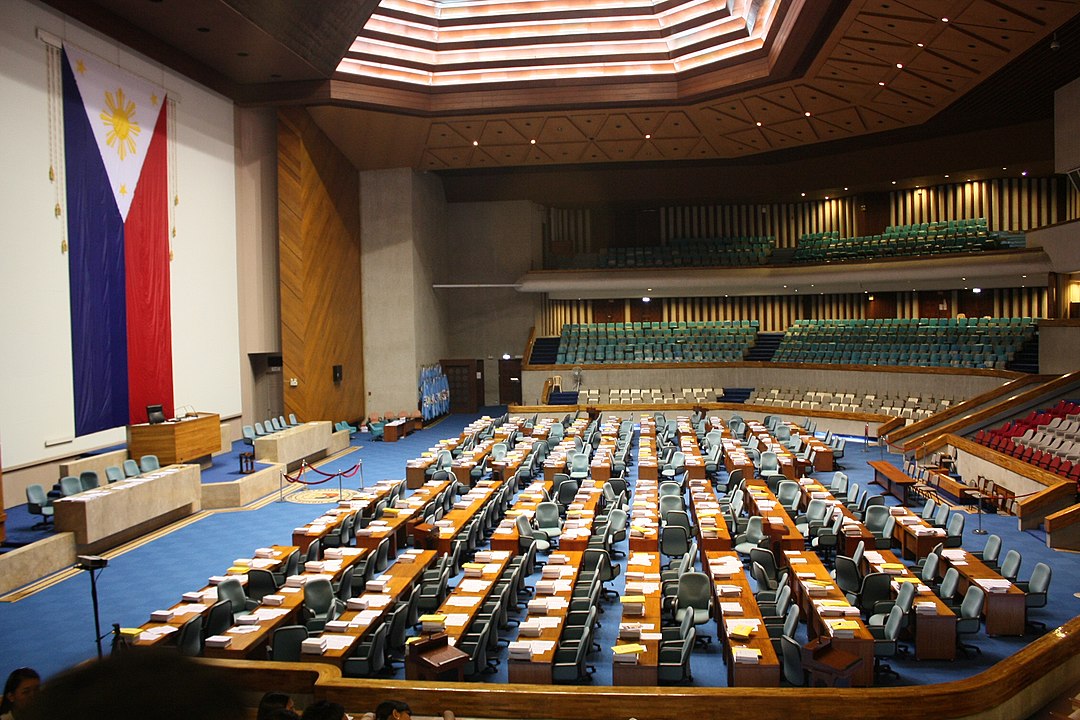News
Solon wants cost-benefit analysis of proposed charter amendments

FILE: Empty session hall of the House of Representatives. (Photo By Gerald Tejada/Wikimedia Commons, CC BY-SA 2.0)
MANILA – There is a need to perform a cost-benefit analysis in amending the Constitution in order to relax restrictions on foreign investments.
House Minority Leader Marcelino Libanan called on the National Economic and Development Authority to submit to Congress a detailed report on the projected benefits, particularly in terms of foreign direct investments that would come in per industry, the number of new jobs that would be created, and the incremental tax revenues that would be generated.
He also asked the Department of Budget and Management to come up with reliable estimates on the cost side.
“If we really want to tweak the economic provisions of the Constitution to draw in more foreign investors, then we would need a baseline comparison of cost and benefit,” Libanan said in a news release on Sunday. “This is the most sensible approach — for us to ascertain whether the benefits outweigh the costs.”
He noted that the Constitution prohibits or restricts foreign ownership in various industries.
“Foreigners, for instance, are barred from owning any equity in mass media, which is totally reserved only for Filipinos or entities that are 100 percent owned by Filipinos. Foreigners are also prevented from participating in the exploitation of the country’s marine resources in archipelagic waters, territorial sea, and exclusive economic zone,” he said.
He pointed out that the Constitution also caps foreign equity in several industries, such as in the operation of public utilities, educational institutions, private radio communications networks, and land ownership.
Last week, the House Committee on Constitutional Amendments approved a resolution calling for the formation of a constitutional convention to amend the 36-year-old charter.
In sponsoring the resolution before the plenary, committee chair and Cagayan de Oro City Rep. Rufus Rodriguez said that the Constitution contains numerous restrictions against the flow of foreign capital in specific areas of economic activities.
“Although the restrictions on foreign ownership are designed to prioritize Filipino citizens, it is noted however, that the country sorely lacks the requisite capital to boost our economy and develop our natural resources. It is high time to liberalize such restrictions in order to encourage the free flow of capital in the country and pave the way to global competitiveness,” Rodriguez said.
He said the Constitution needs to be reviewed, claiming it is the third most restrictive in the world and the most restrictive in Southeast Asia.
Citing a graph from the Organization of Economic Cooperation and Development in 2020, Rodriguez said the Philippines is the most restrictive in terms of foreign equity capital which is enshrined in the Constitution.
“Despite the efforts of Congress to address the inimical economic situation of our country, the Philippines’ FDI (foreign direct investment) restrictiveness hampers the flow of much needed foreign investments,” he said.
He said adopting a more liberal policy will increase the country’s capital, firm productivity, government revenues, imports and exports, and gross domestic product growth rate.





















